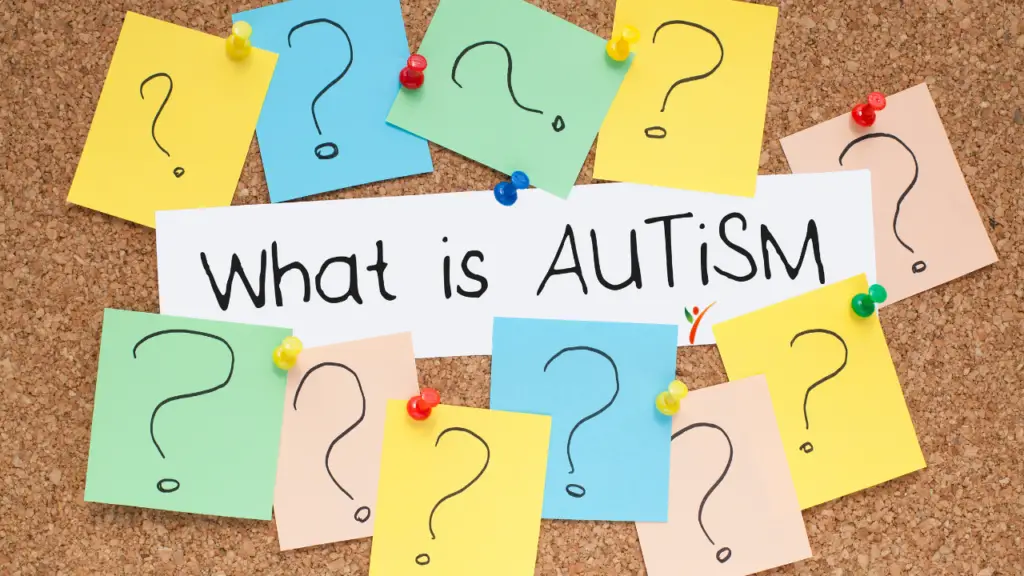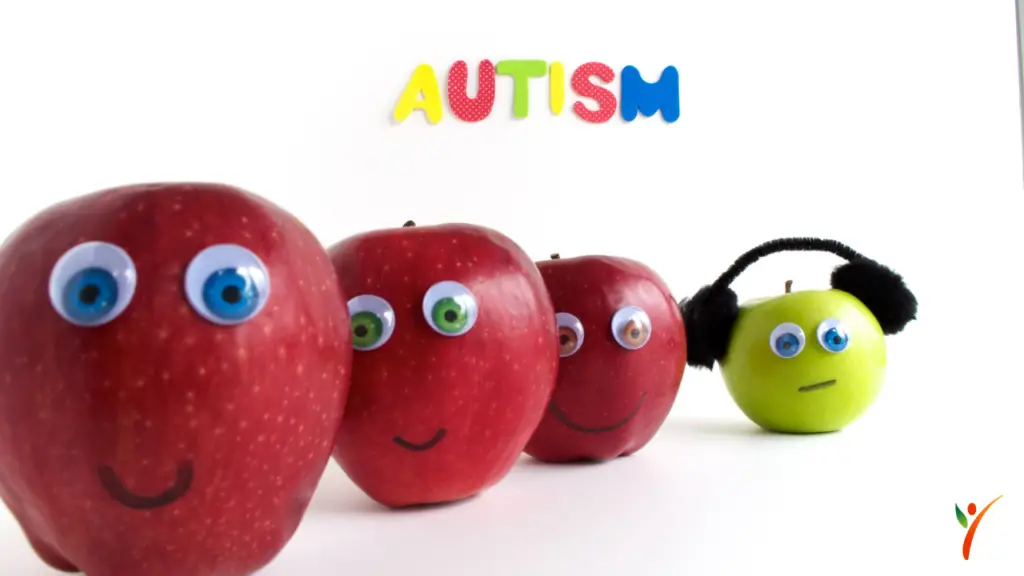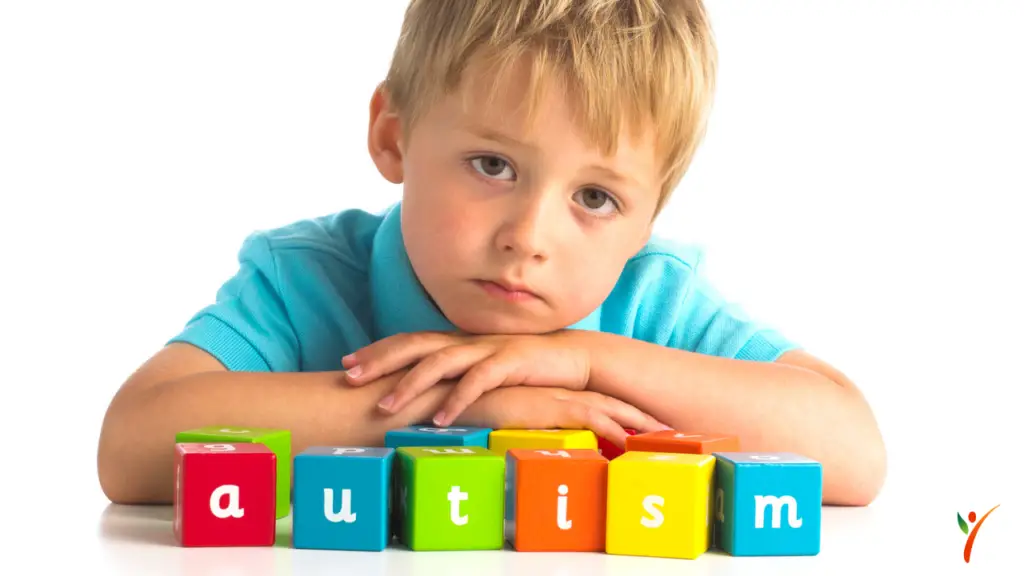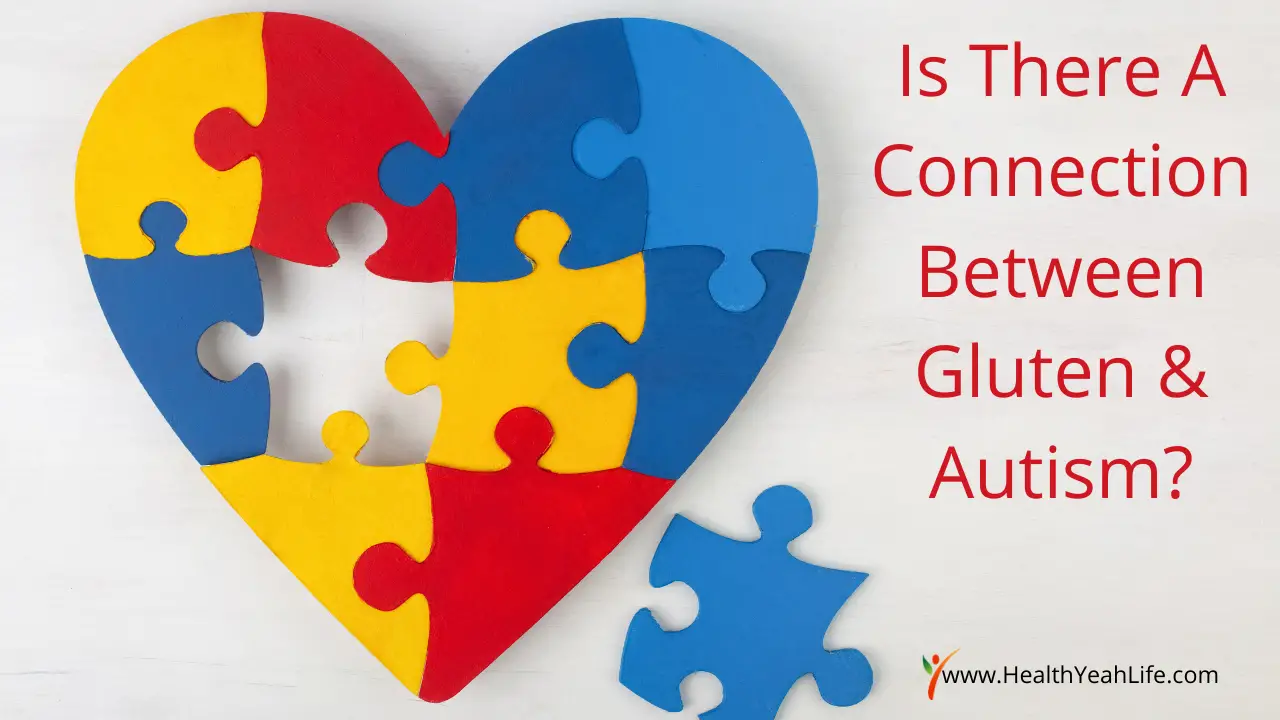You may have heard a lot of celebrities and everyday people giving praises for gluten-free food lately. You may have also wondered if all the hype around gluten-free food is worth it all. Well, you are certainly not alone. With so much advertising and people advocating the use of gluten-free food, it indeed has some reasons.
Gluten-free food is helpful in so many more ways than you would have thought. The latest findings suggest a relationship between gluten and autism. And the results suggest an affirmative answer to this correlation. A gluten-free diet and autism are related to each other in the way where the former helps to keep the latter's everyday difficulties with life at bay and lead the patient towards a new hope of good health.
To understand this relationship between a gluten-free diet and autism, we have to look at the condition of autism.
What Is Autism?

The full name of autism is Autism Spectrum Disorders (ASD), which is a disorder that cause developmental issues in children. This disorder becomes a hindrance in the ability of the children to communicate or even interact socially.
- We have seen a considerable amount of research on the subject of a gluten-free diet and autism to find relief from the symptoms of autism in the children.
- But even so, the children with autism prefer to consume bland food like bread that is a high gluten-containing food product due to the wheat in it.
- It leads to raising new questions like whether gluten is the main reason behind the development and continuance of autism in those children.
Can Eating A Gluten-Free Diet Help With Autism?
The children with autism are put on a gluten-free/casein-free diet or more commonly called a GFCF diet. In this diet, all food containing gluten like wheat, rye, barley, and the likes are strictly forbidden from consumption, and so are casein containing food items like all those in dairy products.
This diet has proved to be effective in many cases of children with autism, where symptoms have seemed to fall with evident betterment. Such as in their regular speech and behavior. So, the question of whether gluten-free help autism is answered positively through these cases of improvement.
How does diet prove to be effective? And what causes those symptoms of autism to reduce needs an understanding before concluding out of the findings.
How Does A Gluten-Free Diet Reduce Autism?

While the working of this approach towards helping with autism works as a positive point, it stems from a theory concerning the same. The idea revolves around the guess that autistic children are naturally allergic to gluten or casein in their food.
Gluten-free and casein-free eating routine fall under the most investigated dietary treatments utilized with autism patients.
- There is a subset of autistic kids with digestive issues who may profit from preliminary gluten and casein-free eating regimen.
- In a review of parents of autistic youngsters in England, 19% had attempted gluten and a milk-free eating regimen, and 43% of these had never consulted a dietician (Huxham, 2012).
- A larger part of these parents revealed critical enhancements in different parts of their youngster's prosperity on gluten or potentially milk-free eating regimens with noteworthy upgrades in inside propensities, general well-being, resting examples, focus, and social correspondence.
- These outcomes are predictable with other recounted reports and overviews around the world.
- Exploring explicitly confining gluten and casein in kids' eating routine with autism is moderately restricted despite its notoriety as a treatment for autism (Elder 2008).
- Advocates of a GFCF diet propose benefits over a broad scope of manifestations identified with autism, with changes in social interaction and verbal aptitudes needed most customarily noted.
- In any case, support for the GFCF diet comes principally from clinicians, guardians, and instructors.
- It depends significantly on self-reports, not direct estimation in this way, restricting the legitimacy of the discoveries.
Analysts exploring the conduct impacts of a GFCF diet on youngsters with mental imbalance produce clashing outcomes. Knivsberg and associates have led a few examinations assessing the implications of GFCF eating fewer carbohydrates on conduct than natural markers of people with autism.
Story Of Studies
A study shows an experimental group of kids put on a GFCF diet to a benchmark group of kids who encountered no diet changes. Both test and control groups comprised of youngsters with autism and unusual urinary peptide designs.
- A solitary visually impaired plan and conduct estimations were gathered utilizing approved estimation instruments in gauge and afterward again one year later.
- Results proposed more notable improvement in the eating routine gathering essentially when contrasted with the benchmark group across evaluations of consideration, social and enthusiastic practices, informative capacity, psychological elements, tangible/engine practices, and all-out disability.
- Nonetheless, this investigation (like a large portion of the examination on GFCF abstains from food) failed because guardians, instructors, and members were not incognizant about the treatment conditions, and the essential information received from interviews with the guardians.
- Different scientists have finished examinations with better exploratory meticulousness to address a portion of these test restrictions. For instance, Elder and partners (2006) completed a two-fold visually impaired test that included direct social perceptions and organic tests and approved estimation instruments (i.e., Childhood Autism Rating Scale; CARS).
This examination tended to the impediment of guardians, instructors, and members realizing; the treatment conditions by utilizing a twofold visually impaired test. It also managed to restrict depending on interviews to recognize conduct change by legitimately; estimating contrasts in conduct using social perceptions when actualizing the GFCF diet.
With these restrictions tended to, Elder et al. (2006) found no stark contrasts between the test and control bunch over the immediate conduct perceptions, the urinary peptide levels, and the CARS evaluation.
Why Should You Administer A GFCF Diet To Your Autistic Child?

If you have considered administering a GFCF diet to your autistic child or have naturally doubted this therapy, here are a few reasons that will give you a clearer picture of how a gluten-free diet helps autism.
Relatively safe and effective, this diet is one of the safest ones to get your child to follow. It eliminates any need for getting chemical and medicinal based treatments. This natural method, even if slightly effective, dramatically impacts the child's health by drastically reducing the symptoms of autism.
Health And Skill Improvement
As many people have tried putting their autistic kids on a GFCF diet, most of them have positive testimonials of what drastic a change; has been caused by going gluten-free. And the remarkable ways in which they have witnessed an evident difference in their kid's symptoms.
There are numerous testimonies of improved cognition; receptive language, expressive language, sleep quality, reduction in disruptive behaviors, lesser hyperactivity, better bowel movements, reduction in ear infections, pain tolerance normalizing, eczema clearing, and much more.
Curbing The Functional Folate Deficiency
Folate is essential for appropriate mental health. Cerebral Folate Deficiency shows an issue in numerous children with autism.
Folate is significant because it underpins the digestion of purines and pyrimidine, which are the structure squares of RNA and DNA. They are critical in the creation of energy.
The body uses folate for its overall cognitive development. Studies show that dairy blocks folate receptors. It is critical data since ongoing investigations show that most children with autism have folate receptors, autoantibodies that stop folate from entering the cerebral spinal liquid.
Most children with autism are already low in folate. Dairy can aggravate that issue even more.
Most prepared wheat items (grain, pasta, bread, cake, and treat blends) have included folic corrosive. Folic corrosive is the engineered, oxidized type of folate.
Most children with mental imbalance have hereditary polymorphisms that make it hard to use folic corrosive. If so, folic corrosive buoys around in the blood, unfit to be utilized, can block folate receptors.
Does Gluten Cause Leaky Gut?

Gluten is high in a part called Zonulin, which can cause intestinal penetrability, otherwise called “flawed gut.” Expanded gut permeability adds to uplifted responses to food parts in the intestinal parcel; of children with ASD. Subsequently, the child feels their system is reactive to any food that they eat frequently.
The responses can fluctuate from child to child; however, they regularly incorporate trouble concentrating, blockage, looseness of the bowels, and general aggravation. A 2017 survey recommends that leaky gut may likewise add to uneasiness and melancholy.
Zonulin is a protein that adjusts the porousness of the GI plot. The higher the Zonulin, the more prominent the possibility of gut penetrability.
In 2012, the American Academy of Paediatrics started to recognize the leaky gut issue in mental imbalance.
Strikingly, people with ASD on gluten and casein-free weight control plans have lower intestinal permeability; than those on unlimited eating regimens.
High Hormones Content In Milk

Dairy usually is exceptionally high in anabolic hormones.
Anabolic hormones invigorate development. These hormones are not, in every case, useful for a developing youngster. And, hypothetically, may prompt gifted pubescence or even reason malignancy cells to develop.
Dairy ranchers infuse cows with a hereditarily designed cow-like development hormone called rBGH to expand milk creation.
Indeed, even bovines raised on a natural eating routine goes through drainage while pregnant, delivering milk loaded with hormones.
Studies show that steroid hormones in dairy items can be considered a significant hazard factor for different people's diseases.
Dairy represents practically 70% of the estrogens in the human eating routine.
With all these reasons mentioned above and research information, you probably are convinced of how a gluten-free diet reduces autism. To make the best use of this diet, you must have your child eat gluten-free for a long time, and the symptoms are sure to get much better than before.
While some people still disregard the relation between a gluten-free diet and autism and turn a blind eye towards its benefits, one certainly cannot overlook how impactful it is in treating autism.
What To Know Before Starting a GFCF Diet
Before beginning an autistic child on a GFCF diet, be careful about the concealed sources of gluten.
- You can find gluten in seared nourishments tidied in flour, even in beauty care products and a few meds. Entire nourishments, for example, organic products, vegetables, and nuts might be sheltered.
- Before rolling out the change to a GFCF diet, counsel your child's doctor.
- An authorized dietician can teach you about the GFCF diet and help you with fitting the eating routine; to your youngster's well-being needs and taste inclinations.
- Taking everything into account, the connections between diet and autism are incredibly intricate, and there is regularly a wide range of variables at play.
Final Words
Because of the dangers of dietary and nutritional lack, gluten and the casein-free eating regimen should just be followed under the management of a dietician or a doctor, ideally, in the field of knowledge concerning autism.
Autistic individuals who present with gastrointestinal manifestations warrant a careful assessment and timely referral to a Gastroenterologist. Specific eating regimens have become substantially more standard, and even restaurants regularly have gluten-free or dairy-free alternatives.
Modifying your youngster's eating regimen may not respond to the issues; your kid is encountering, yet it is a non-obtrusive approach to attempt to improve your kid's life.
Please take note:
We are not doctors, and you must always consult your physician to treat any illness or disability.
Live Extraordinarily!






1 thought on “Is There A Connection Between Gluten & Autism?”
Comments are closed.